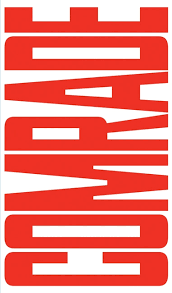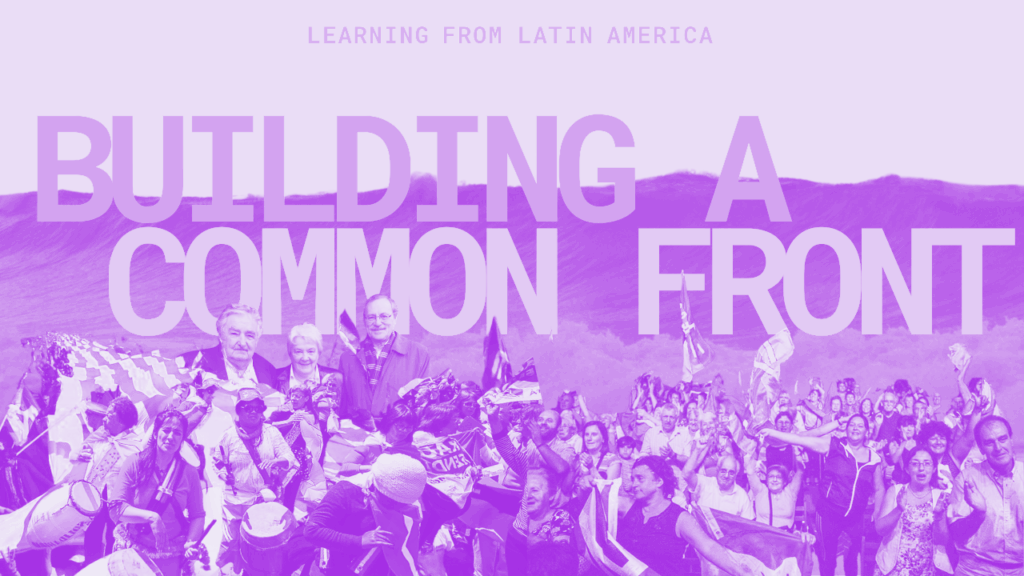All In argues that the task at hand, dismantling capitalism in the short-term, demands we step-up at the organizational level in the way we organize and work with each other. We need “an eyes-on-the-ball approach” and a “degree of agility and flexibility” which requires “a common vision and strong trust relations”. We further need “deliberate and rapid learning cycles” and a “culture of transformative collaboration” “so we can transform society, the organization and the members of the organization all at the same time.
The “speed of trust” in which we have to organize, takes “camaraderie”. With curiosity to further explore this concept and how it may materialize I read Jodi Dean’s book, Comrade: An Essay on Political Belonging.

Dean conceptualizes comradeship as a way of political belonging, and a political relationship build out of a set of expectations of actions towards a collective goal. She later frames the goal as “dismantling capitalism”. She proposes that by addressing someone as a comrade we remind them that we except someone from them. She stresses discipline, joy, enthusiasm and courage as the main attributes of the comrade.
While Dean presents comradeship as the “the form of political relationship necessary for today’s left”, the collective the comrades belong to is for the author, quite clearly, the party. On the other hand, those who, like All In’s authors and myself, believe the context we live in (of hyper globalization) and the task at hand (dismantling capitalism in the short-term) call for an internationally organized movement, may be unsatisfied with Dean’s claim.
One may wonder if we should accept the idea that “the party is the organization from which comradeship emerges and the organization produced by comrades”, or rather, if it is our task to also dedicate efforts into building international meaningful camaraderie.
I would argue that the movement-as-the-party proposal, brought up in All In, entails we build political relationships of trust, common visions and shared agreements, at the international level, which can take us forward fast. Hence, those militants, who want to take this existential task into their hands, have to deliberately put effort into finding the right strategies to building camaraderie appropriate with such framework. We must collectively commit to finding processes and frameworks that can support us in building “deliberate and rapid learning cycles” and working with a “speed of trust”, also at the movement level. And while there is much to explore, it seems impossible to do so, if we do not seriously commit, in our organizations, to allocate resources to international organizing and international coordination.
Even if it is definitely more challenging to build camaraderie with those to whom we are further apart geographically, the attributes brought up by Dean in her book may shed some light into some elements to have in mind. The author highlights discipline, joy, enthusiasm and courage as characteristics of a comrade. We may want to collectively explore and learn ways in which we can be intentional and accountable towards these attributes and take it as a directive to build up processes in which we can collectively support each other in shaping our international work in line with the discipline, joy, enthusiasm and courage that it takes to build and care for international camaraderie.
Leonor Canadas is a climate justice activist in Climáximo, based in Lisbon. She took part in the coordination of the portuguese Climate Jobs Campaign, and in the Global Climate Jobs Network. She participated in the writing of two of the campaign’s reports. She has a masters in Organic Farming and Food Systems, and is specially interested in Agroecology and Agroforestry.
N.B. These “interaction” articles are book readings with specific angles. We have no intention of summarizing or reviewing the books. Rather, we are exploring interactions between the books’ content (main arguments or minor observations) and the movement-level strategy and organization framework presented in All In.







